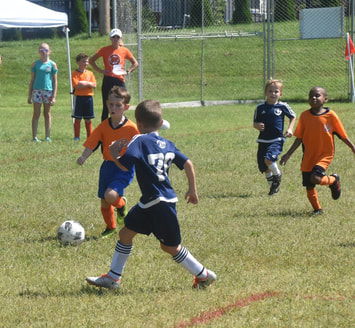 Photo: M. Smith
Photo: M. Smith The cherry on top for my wife and I was when she had a serious fall on Dec 30th, 2020, breaking two bones in her ankle.
A New Year's celebration does not erase all the issues of a bad year. We'll have a hangover for a while. The article I wrote in 2015 talks about balance in your life. Balance is key. We can't give or take too much. For me, this is a "Giving Day". See below.
The best to all for 2021 and beyond!
What are the other types of days that you can experience in your, hopefully, many days on this earth? I’ve found in my own experience that there are seven basic types of days and you will live them over and over. I’ve already brought up “Bad” days. The other six are:
- Giving Days
- Taking Days
- Playing Days
- Resting Days
- Loving Days
- Good Days
These days don’t come in order like the seven days of the week. This is a metaphor. The ‘seven days of your life’ can come in any order and last more than a calendar day. They can even change during, or be combined within, a calendar day. We do, however, have some control over five of the seven days of our life. If you plan correctly, your Bad days will be minimized and Good days will be like icing on the cake of the other five days. Let me explain.
Giving days are for work, causes, family, and people we care for. We forget about our wants and needs on these days and give of ourselves and our time. It may be to volunteer for a charity, or to give up something you would like for time to help, or be with, another who needs you. It may be to visit a sick friend or to mow a neighbor’s lawn who may be out of town. Giving days will come back to you in good ways.
Taking days are for you. Depending on what kind of person you are, these days are many or few. We spend these days doing the things we like for ourselves. It could be reading, climbing, flying, or sleeping. We usually do these things alone or with those like us. We need these days to grow and recharge our imaginations.
Playing days are different than Taking days. Playing days involve friends or family, while enjoying life. Going to a movie, a picnic, going out for dinner, etc. are all playing days. Playing days are not self-sacrificing, nor or they focused on the ‘self’. Playing days are both give and take. You need Playing days for your social self and bonding with others.
Resting days are just that. We all need to refresh and renew, and true rest is needed to do that--however that works for you. You can’t really rest on Playing days nor Taking days—unless you’re Taking days involve sleep. Hopefully, most of us like more variety for our self-interests than extra sleep. But resting is more than sleep.
Loving days are noticing days. Days where you see the sunshine, you hear the birds, you smell the flowers and feel the breezes. Loving days can be full of awareness for the love you have for the simple pleasures of life, like the giggle of a child, or the wisdom of an elder. Loving days are for the senses. They are in appreciation for the things you often take for granted.
Good days are gifts. Like Bad days, they come without warning. Any of five days can also be Good days. You can have a Good day while Giving, Taking, Playing, Resting, or Loving. But by definition, you can’t have a Good day on a Bad day.
The ‘Seven Days of your Life’ should have some balance (see my previous post). With too many of any one type of day you can reach a saturation point, a point of diminishing returns, or uncontrolled pain.
- Too many Giving days and you may become a self-fulfilled martyr.
- Too many Taking days and you will become selfish.
- Too many Playing days and you will be not accomplish anything.
- Too many Resting days and you will become bored or boring.
- Too many Good days and you will lose appreciation for them, a common malady!
- Too many Bad days and you will become frustrated and/or depressed.
The only day you can’t have too many of are--Loving days! The only thing you may lose with Loving days are Bad days. So the lesson I see here is...“variety and vision in your life”! A little give, a little take--a little work and a little play—and a huge dose of noticing the little things in life.
Recognize and plan Giving, Taking, Playing, Resting, and Loving days. It will make you a better person, and if you are a mom or a dad, a much better parent!



















